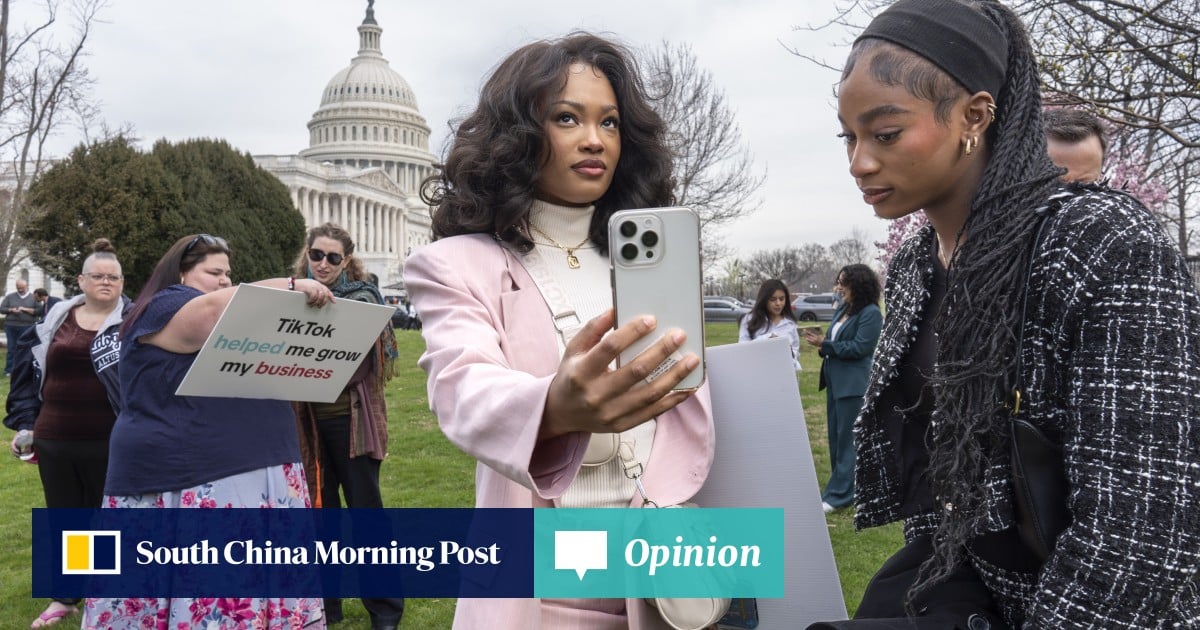It appeared as if the entire US ecosystem was threatened by and working together to reject a digital pathogen. That said, the TikTok ban never came to fruition. The social media platform has only grown since then, becoming an integral part of American popular culture and influencing trends in music, fashion and entertainment.
But recently, it has had a huge political influence, which appears to have a lot to do with the resurgence of calls to ban TikTok. Pew Research Centre data shows that about a third of Americans between the ages of 18 and 29 regularly get their news from TikTok, making the app an increasingly dominant source and online search engine for the youth.
During this US election year, more than 16 million voters could join the electorate for the first time. Studies reveal that the youngest voting cohort, around 54 million individuals aged 18 to 29, are casting their ballots for the first or second time. They are arguably more liberal, presumably a good thing for the current Democratic administration.
Republican politicians have historically advocated for the proactive pursuit of US security objectives, but why are Democrats pushing to clamp down on an app that could ostensibly benefit the party?
Palestinian genocide must not be compared with the Holocaust
Palestinian genocide must not be compared with the Holocaust
The timing of the renewed scrutiny on TikTok raises questions about political motivations and strategic manoeuvring, particularly as part of a broader pattern of silencing dissent and controlling the narrative in the US and internationally.
Trump, ever the opportunist, has seized the chance to back TikTok instead, saying he believes that the ban would double Meta’s business. The former president frames Facebook as a threat to democracy, particularly against the backdrop of Mark Zuckerberg’s involvement in funding American elections.
However, note that the first time Trump attempted to ban TikTok was a day after Meta came out with a rival video-based product. It is clear that Trump’s U-turn on TikTok is not about preventing Meta from doing better, but about preventing Biden from doing well in the upcoming election.
Polls suggest there has been a significant shift in public opinion regarding the Israeli-Palestinian conflict, particularly among Democrats and younger demographics. Before the start of Israel’s ongoing war on Gaza, there was already a trend of increasing sympathy towards the Palestinian cause.
The outbreak of war further exacerbated this, with support for Palestinians among young voters nearly doubling from October to November. The Gaza conflict has undoubtedly become a vexing issue for the Biden administration, complicating the political landscape in unforeseen ways.
While TikTok has reportedly assured stakeholders that it is not amplifying pro-Palestine protests, the Biden administration is caught in a precarious position and faces a quandary with significant implications. The timing of the decision – whether to ban TikTok and risk alienating a crucial voting bloc, or abstain from such action and potentially strain relations with Israel – was already viewed with suspicion. Trump’s reversal on TikTok signifies a doubling down on the genuine pressure faced by Democrats.
Clearly, young voters matter a lot to the Democrats. Whether they cloak their motivations under the guise of defending free speech, free markets or another pretext, TikTok will most likely not be banned in the US.
Ravale Mohydin is a researcher at TRT World Research Centre in Istanbul

